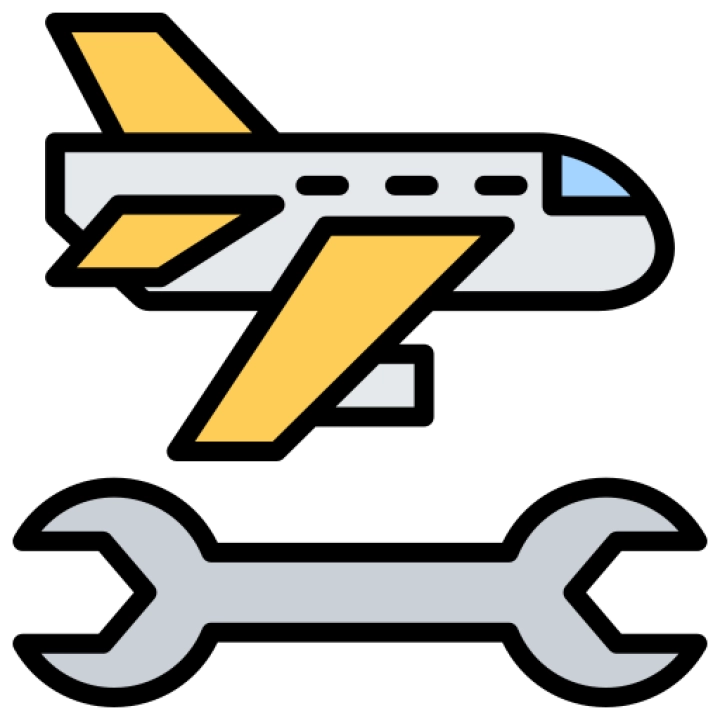College: Graduate Programs Institute
This specialization provides an in-depth understanding of the design, development, maintenance, and operation of aircraft. Students explore principles of aerodynamics, propulsion systems, electronics, material science, and aircraft maintenance practices. The program focuses on innovation, technical expertise, and safety standards to prepare students for careers in aircraft manufacturing, aviation maintenance, and research and development. Graduates are equipped to contribute to the advancement of aviation technology and ensure the safe and efficient operation of aircraft.
Learning Objectives:
- Understand the fundamentals of aerodynamics, flight mechanics, and propulsion systems.
- Develop skills in aircraft design, manufacturing, and performance optimization.
- Learn aircraft maintenance, repair, and overhaul techniques.
- Explore the role of material science and advanced composites in aerospace engineering.
- Understand the integration of avionics systems, flight controls, and communication technologies.
- Analyze challenges in aircraft safety, efficiency, and environmental impact.
- Develop teamwork, problem-solving, and technical communication skills for aviation projects.
Main Outline:
- Introduction to Aircraft Engineering
- Overview of the aviation industry, history of aviation, and principles of aircraft engineering.
- Aerodynamics and Flight Mechanics
- Study of lift, drag, thrust, and flight stability.
- Techniques for analyzing and optimizing aircraft performance.
- Aircraft Propulsion Systems
- Basics of jet engines, turbine engines, and piston engines.
- Techniques for propulsion system design and maintenance.
- Aircraft Structures and Materials
- Principles of structural analysis, load distribution, and stress testing.
- Study of lightweight materials, composites, and advanced alloys used in aviation.
- Avionics and Control Systems
- Exploration of navigation, communication, and flight control systems.
- Techniques for integrating avionics systems in modern aircraft.
- Aircraft Maintenance, Repair, and Overhaul (MRO)
- Study of maintenance procedures, diagnostic tools, and troubleshooting techniques.
- Principles of regulatory compliance and safety standards in aviation.
- Sustainability and Environmental Impact in Aviation
- Analysis of fuel efficiency, emission reduction, and alternative energy sources.
- Techniques for designing greener, more sustainable aircraft.
- Flight Testing and Performance Evaluation
- Basics of testing procedures, performance analysis, and certifications.
- Techniques for ensuring aircraft reliability and operational efficiency.
- Emerging Trends in Aircraft Engineering
- Exploration of innovations such as electric aircraft, drones, and supersonic travel.
- Techniques for adapting to advancements in aerospace technology.
- Capstone Project in Aircraft Engineering
- Practical project involving design, analysis, or enhancement of an aircraft system.
- Techniques for delivering a comprehensive engineering solution.
Assessment Methods:
- Laboratory experiments in aerodynamics, propulsion, and materials testing.
- Written assignments on aircraft design, maintenance, and safety protocols.
- Group projects focused on improving aircraft performance or problem-solving.
- Participation in internships or fieldwork with aerospace organizations or airlines.
Recommended Textbooks:
- "Aircraft Structures" by David J. Peery and J.J. Azar.
- "Introduction to Flight" by John D. Anderson.
- "Aircraft Maintenance & Repair" by Michael Kroes and William Watkins.
- "Fundamentals of Aircraft and Airship Design" by Leland Nicolai and Grant Carichner.
Prerequisites:
Basic knowledge of physics, mathematics, and mechanical engineering is recommended. Suitable for students in engineering, physics, and related fields.
Program Duration:
Typically 4 years, including coursework, laboratory work, and internships.
Certification:
Graduates may earn a degree in Aircraft Engineering or Aerospace Engineering. Additional certifications, such as FAA A&P license or EASA Part-66 license, can be obtained post-graduation.
Target Audience:
Aspiring aerospace engineers, maintenance technicians, and aviation enthusiasts aiming to excel in aircraft design, operation, and maintenance. This specialization equips students with the technical knowledge, practical skills, and safety-focused mindset necessary for success in the dynamic and innovative field of aircraft engineering.

